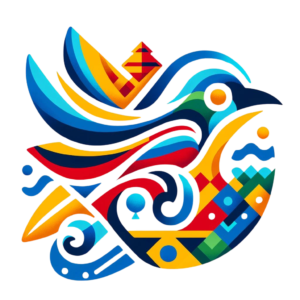Introduction to Salvadoran Culture
Overview El Salvador, the smallest and most densely populated country in Central America, boasts a rich history that spans from ancient indigenous civilizations through Spanish colonialism to its dynamic present. The country’s cultural diversity is reflected in its people, traditions, and customs, making it a fascinating place for expatriates to explore.
Cultural Identity Salvadoran culture is a vibrant mix of indigenous (primarily Pipil and Lenca), Spanish colonial, and modern influences. This blend is evident in the country’s music, dance, art, and, most notably, its cuisine. Despite the challenges of the past, including civil unrest and natural disasters, Salvadorans possess a strong sense of national pride and resilience.
Language Essentials
Official Language Spanish is the official language of El Salvador, characterized by its distinct Salvadoran dialect and regional variations. Understanding these nuances can enrich an expatriate’s experience and facilitate deeper connections with locals.
Learning Spanish Expatriates are encouraged to learn or improve their Spanish to navigate daily life more effectively. Language schools such as Centro Cultural Salvadoreño Americano offer structured courses, while online platforms like Duolingo and Rosetta Stone provide flexible learning options. Immersive practices, such as language exchange meetups and conversing with local friends, can accelerate language acquisition.
Basic Phrases
- Greetings: “Buenos días” (Good morning), “Buenas tardes” (Good afternoon), “Buenas noches” (Good evening/night)
- Directions: “¿Dónde está…?” (Where is…?), “A la derecha” (To the right), “A la izquierda” (To the left)
- Common Questions: “¿Cuánto cuesta?” (How much does it cost?), “¿Habla inglés?” (Do you speak English?)
Understanding Cultural Norms and Values
Social Etiquette Salvadorans are known for their hospitality and friendliness. When greeting, a handshake or a kiss on the cheek (for women) is common. Dress codes tend to be casual, but modesty is appreciated, especially in rural areas. During meals, it’s polite to wait until the host begins eating.
Family and Community Family and community play a central role in Salvadoran society. Extended families often live close to each other, and community events are a staple of social life. Respect for elders and authority figures is emphasized.
Time and Punctuality Salvadoran perceptions of time may be more relaxed than what many expatriates are accustomed to. While punctuality is appreciated, especially in professional settings, social events may start later than scheduled.
Navigating Social Situations
Making Friends and Networking Expatriates can connect with locals and fellow expats through social clubs, interest-based groups, and community events. Being open, curious, and respectful of cultural differences can pave the way for meaningful friendships.
Cultural Do’s and Don’ts Do express interest in Salvadoran culture and history. Don’t bring up sensitive topics such as politics or the civil war without understanding the conversational context. Appreciate and try to understand cultural nuances rather than comparing them to those of your home country.
Festivals and Public Holidays
Salvadorans celebrate a variety of festivals and public holidays with great enthusiasm. Major festivals include Fiestas Agostinas in August, celebrating the Transfiguration of Jesus with parades and fireworks, and Día de los Muertos (Day of the Dead) on November 2nd, where families honor deceased loved ones. Public holidays like Independence Day on September 15th are marked with nationwide celebrations.
Salvadoran Cuisine
Salvadoran cuisine is a delicious exploration of flavors and ingredients. Must-try dishes include Pupusas (stuffed tortillas), Tamales, and Yuca Frita. For an authentic dining experience, visit local mercados, street food vendors, or traditional restaurants. Cooking classes and local cookbooks can also introduce expatriates to the joys of Salvadoran cooking.
Arts and Entertainment
The music and dance of El Salvador, including genres like Cumbia and Salsa, play a significant part in celebrations and social gatherings. Salvadoran literature and cinema offer insightful perspectives on the country’s identity and history, with works by authors like Roque Dalton and films like Voces Inocentes.
Cultural Adaptation
Dealing with Culture Shock Adjusting to a new culture takes time. Acknowledge feelings of culture shock, seek support from the expat community, and maintain an open and adaptable attitude.
Building Cultural Competence Becoming culturally competent involves continuous learning and engagement. Participate in cultural events, visit museums, and interact with locals to deepen your understanding and appreciation of Salvadoran culture.
Resources for Cultural Engagement
Cultural Centers and Museums Places like the Museo Nacional de Antropología Dr. David J. Guzmán offer insights into Salvadoran history and art. Language exchange programs and social groups, such as those found on platforms like Meetup or Internations, can facilitate cultural immersion and language practice.
Navigating the transition to life in El Salvador involves embracing its language and culture with an open heart and mind. By engaging with educational opportunities, understanding social norms, and participating in community life, expatriates can enrich their experience and form lasting connections in their new home.
